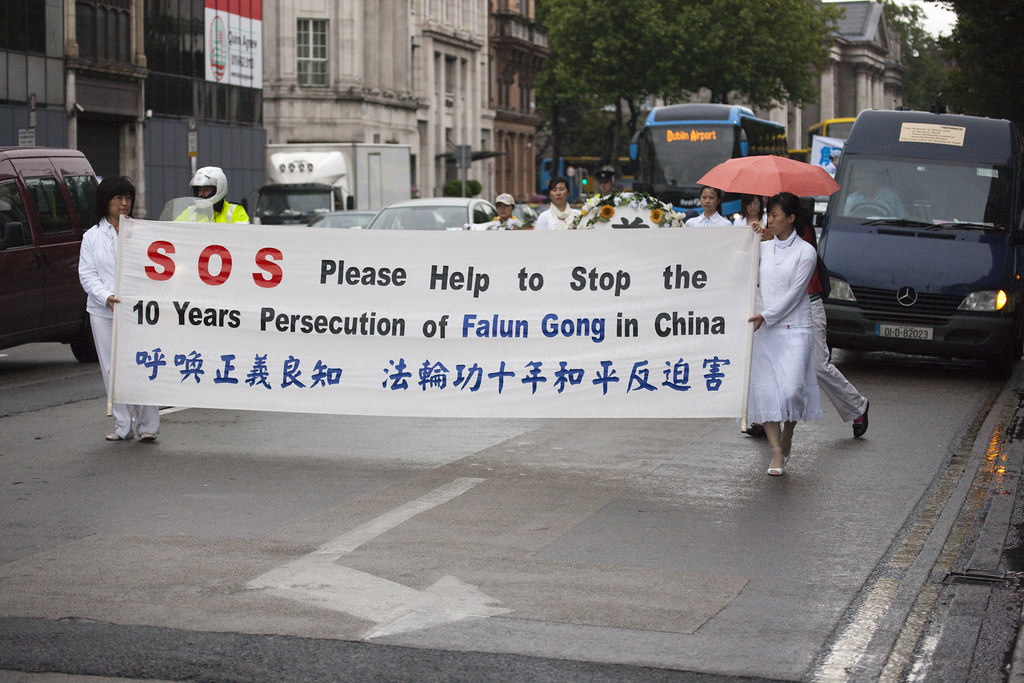“Letters from Masanjia” Film Screening

On Friday Jan. 31 the Falun Dafa club at UCLA, which hosts free workshops on meditation and Qigong practices, hosted a film screening of the 2018 documentary “Letter from Masanjia” at the Ackerman Grand Ballroom. The documentary opens with Julie, a married mother of two living in Oregon who finds a mysterious letter on the back of a Halloween decoration made in China. It turns out the letter was written by Sun Yi, a Falun Gong practitioner who was imprisoned in the Masanjia labor camp in China. After the letter’s discovery is covered in the newspaper, The Oregonian, it swiftly becomes international news.
Canadian filmmaker Leon Lee, a Peabody winner for his other documentaries covering human rights abuses in China, contacts Yi, who was then two years out of prison. Since Lee cannot enter China due to his previous work, he entrusts Yi to film his life and to share his story as a former labor camp prisoner. From then on, the film follows Yi as he tries to gain back his life, religion, and wife, all the while avoiding government persecution and possible re-imprisonment.
Sun Yi’s purported crime was practicing the spiritual teachings of Falun Gong. Falun Gong, or Falun Dafa, is a Chinese religious practice that uses meditation with a moral philosophy focused on the tenets of “truthfulness, compassion, and forbearance.” Falun Gong originated in 1992 and was first taught by Li Hongzhi. The practice proved to be popular, but by the latter half of the 1990s, China’s Communist Party viewed Falun Gong as a threat. Their movement was too big, too independent from the government, and their spiritual teachings’ focus on searching for the truth went against the state’s control over information. As a result, the state-run press launched negative media campaigns to damage Falun Gong’s following. In response, Falun Gong practitioners staged protests. The most significant protest was held in April 1999, when thousands gathered in Beijing to request legal recognition and freedom from state control. However, on July 20 of the same year, the Chinese government initiated a nationwide propaganda campaign to fully eradicate the practice. Since then, Falun Gong practitioners in China have reportedly been subjected to human rights abuses such as forced labor, torture, and brainwashing.
Throughout the film, we follow Yi’s efforts to follow his faith in secret and to maintain his relationship with his wife after his imprisonment strained their marriage. Since the director cannot return to China, it is up to Yi and company to film his daily life and his memories from Masanjia. Whenever Yi takes the audience back to his time in Masanjia, his stories are brought to life through animation. Based on Yi’s own sketches, he acts as narrator as the audience witnesses depictions of his torture and how he enacted his plan to send out SOS letters. Yi’s first-hand experiences only exist as memories, but the animated reenactments of his torture allow the audience to experience his struggles with him.
Yi’s letter ultimately led to international pressure and a crackdown on China’s labor camps. The Masanjia labor camp itself was shut down (however it is likely it was merely rebranded). Although the film depicts only one man’s experiences with abuse at the hands of his government, his careful documentation of his life will forever exist as an example of the Chinese government’s authoritarian control over its citizens that prevails to this day.




